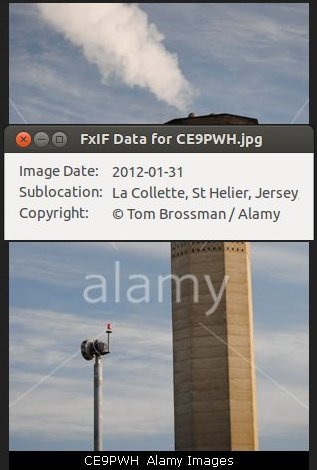 Alamy, a large stock photo agency based in the UK, are not deleting ex-contributor images 45 days after contract termination as required. What’s worse, they still host and serve them publicly from alamy.com and claim they have “…practical and operational reasons for doing so.”
Alamy, a large stock photo agency based in the UK, are not deleting ex-contributor images 45 days after contract termination as required. What’s worse, they still host and serve them publicly from alamy.com and claim they have “…practical and operational reasons for doing so.”
For the avoidance of any doubt, here is the relevant passage from their Contributor Contract which makes the terms pretty clear:
20.3 On termination Alamy shall;
20.3.1 delete from its Website each Image provided by you in respect of a terminated contract;
Before I continue, I feel obliged to point out that Alamy are one of the better photo agencies for photographers to work for. They also do like many other corporations and donate a portion of profits to charities.
Still, this does not grant them permission to ignore contracts and copyright law. And continuing to serve them to the public is an exceptionally bad idea. Imagine you were using Alamy managed images without authorisation, and were serving them to the public from your website! They have an entire legal department to handle copyright infringement.
I terminated my contract with Alamy over a year ago, waited 45 days, and thought that was the end of it. I post many photos online which I release under a Public Domain license, and I was tired of having to keep separate the copyright-restricted ones I had at Alamy. I couldn’t use the same image both places for obvious reasons.
 I did a Google search of my name in January and was surprised to find a photo of mine still hosted at the alamy.com domain in the search results. As I type this blog post, you can still find this photo on their servers, complete with intact metadata indicating it’s one of mine. I continued with my search, refining it and discovering more of my images being served to the public by Alamy. Based on some follow-up work, I’ve determined that many (possibly all?) of my images are still hosted there. I’ll decline to further explain my methods for now, as it would enable them to simply delete mine and cover this up.
I did a Google search of my name in January and was surprised to find a photo of mine still hosted at the alamy.com domain in the search results. As I type this blog post, you can still find this photo on their servers, complete with intact metadata indicating it’s one of mine. I continued with my search, refining it and discovering more of my images being served to the public by Alamy. Based on some follow-up work, I’ve determined that many (possibly all?) of my images are still hosted there. I’ll decline to further explain my methods for now, as it would enable them to simply delete mine and cover this up.
I contacted their Member Services on January 10th to explain what I had found and to demand that they delete my images. In their first response they claimed the images “are no longer available in our site” and that “The links you’ve given below is a cached link. Unfortunately we will not be able to remove this link as it’s an indexed page. This is an issue with Google indexing old web pages that are no longer live.”
I followed up with another email explaining that this was not true, and they admitted that “When images are deleted, we remove them from our index but not from our servers for several reasons.” and went on to explain several valid reasons to keep active contributors’ images. They also claimed “they can’t be found using the Alamy search engine or through a Google search”.
Because a Google search is exactly how I found them this didn’t ring true.
I sent one last email demanding that they remove the infringing content and that deadline passed without them taking action. Next I thought I’d raise the issue in a more public manner. Public shaming is alive and well in 2014 though we now use Twitter not the pillory. I posted a message to their @Alamy Twitter account which brought a fairly quick email response from Alan Capel, Alamy’s Head of Content. Here is part of Alan’s reply to me January 14th, 2014:
You are right that the contract doesn’t explicitly say that we will need to access copies of your images after deletion but hopefully you can see from the reasons that my team shared with you, we have practical and operational reasons for doing so. The contract does make it clear that we can sell images after deletion if they are subject to re-use for example. So it is implied.
and
The only way you can find these images is by the explicit link, what i would say is that currently its only you through Twitter who is making your images available on the web to be viewed so it requires a degree of knowledge to find them.
Setting aside the victim-blaming and logic flaws, it appears Alamy feel perfectly entitled to breach their contract because adhering to it is difficult. I can think of a couple contracts I signed that are difficult. I wonder how my bank would feel if I tried this logic on one of theirs?
Copyright law in the US and UK is no joke. The Crown Prosecution Service website Legal Guidance says “Deliberate infringement of copyright may be a criminal offence.” I’ll leave it to you to interpret the word “deliberate” because everything else here is clear.
So where does that leave ex-contributors? I think it leaves us in a good position should Alamy continue to ignore this problem. A legal framework exists and it it best to follow it closely. Search for your name and photos online. If you have your old image codes (CE9PWH in my example) this works well but isn’t required. Contact Alamy and send them a take-down notice with a reasonable deadline. Check the links for your photos and confirm whether they stop working after the deadline passes.
Because Alamy have so far refused to comply, I’ve contacted their web host and filed a legal take-down notice. You should too, if you find that they are hosting your content without authorisation. You might also contact the police and/or a lawyer depending on how strongly you feel about this.
I’m more of a hobbyist photographer but if you are a Pro you might have more reason to be concerned. Potential customers are searching online for photos. They may find your old images at Alamy, contact them to make a purchase, and go with a different or similar photo instead. That’s a lost sale for you!